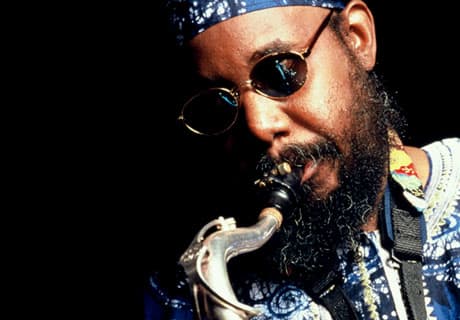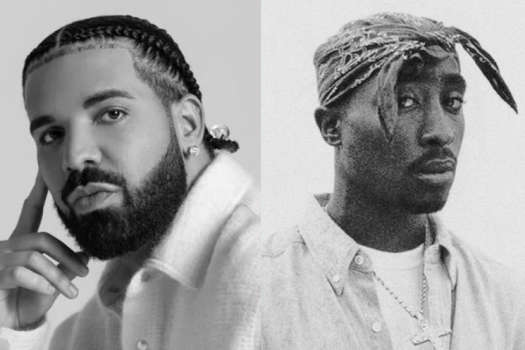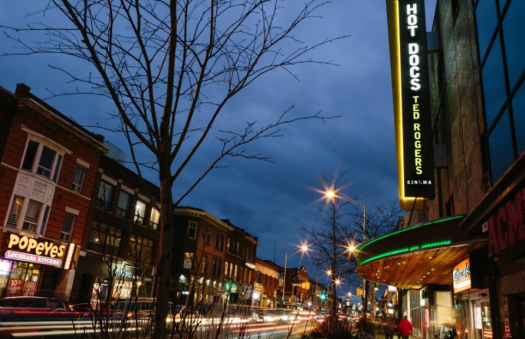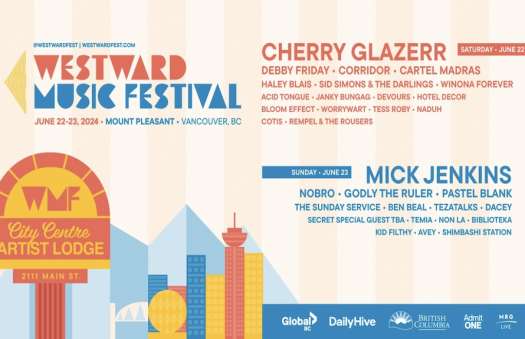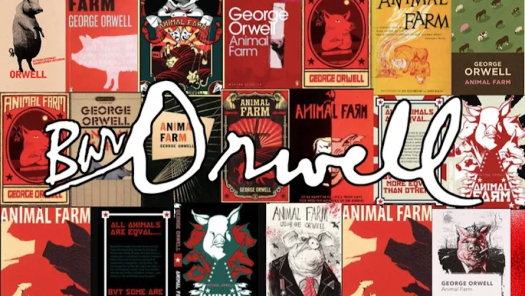Most musicians would regard the release of a live three-CD set as a career-defining moment, a chance to reap some glory from three decades of work. For fire-breathing tenor saxophonist David S. Ware, Live In The World is a summary of his 15 years with his Quartet, as well as his first live recording with the band, but he has no illusions that this will take his career to a new level.
When asked whether 2005 will be filled with live work, he states emphatically: "No! Unless you're in a certain clique with some of these big record companies or agents we're not in those cliques it's not like You got a record out, here are ten concerts.' It's not like that for this band. Just like all the other times, we'll just get what we can get."
Ware is an artist who should be better known beyond jazz circles, if for no other reason than critics' oft-repeated Coltrane comparisons. Ware is noted for his passion, huge sound and sheer technical ability on tenor. The Quartet's songs, especially in a live setting, are long-form journeys full of soul and freedom. They can totally transform a maudlin standard like "The Way We Were," or recast a composition indelibly associated with its creator, like Sonny Rollins' "Freedom Suite."
The Quartet's membership has been relatively stable (pianist Matthew Shipp and bassist William Parker), but each disc in the live set features a different trapsman. Ware is dedicated to the Quartet's unique combination of personalities, though a more fundamental reason has kept them together. "We've been working pretty consistently for the last ten years, that's the key: good musicianship and steady work." That's what makes Live In The World a treat for fans; this set captures the energy only an audience can provoke, with bass frequencies ringing across auditoriums in ways previously untapped by his studio recordings.
Ware is happy about Thirsty Ear, the label releasing the set; he has experienced all aspects of what record companies can and cannot offer a jazz artist. Contravening the convenient "sell out" tag, Ware paints a different picture of his time with Columbia (1998 to 2000). "What brought me into Columbia was a musician [Branford Marsalis, A&R for Columbia's jazz department at the time] who had ears, another saxophonist who was able to hear what I was doing, and that's what I was doing at Columbia no other reason."
While he experienced the impersonal treatment and business orientation that characterises many an artist's experience with a major, he states also that "I had more creative freedom on Columbia than I had on some of the smaller labels. There was no producer I was totally on my own. Even on some of the smaller labels, a cat would be in the studio giving suggestions. I wasn't having any of that! [Marsalis] knew that I had the ability to make a record on my own and I didn't need a producer I thought there'd be someone in the studio with their nose all up in the music, but no."
Live work is still a jazz musician's bread and butter, something that no label helps with. "Even when we were at Columbia, they didn't have a thing to do with us getting work. The first question I asked Branford the day he called me was Do you guys get work for me?' He said, No man, you got to do that yourself.' I was under the impression that record companies would help you do that maybe it was like that in the 60s. I guess they had people to do that, but that's nonexistent for us. Whatever label you're on, it's all the same for getting work: you're on your own."
When asked whether 2005 will be filled with live work, he states emphatically: "No! Unless you're in a certain clique with some of these big record companies or agents we're not in those cliques it's not like You got a record out, here are ten concerts.' It's not like that for this band. Just like all the other times, we'll just get what we can get."
Ware is an artist who should be better known beyond jazz circles, if for no other reason than critics' oft-repeated Coltrane comparisons. Ware is noted for his passion, huge sound and sheer technical ability on tenor. The Quartet's songs, especially in a live setting, are long-form journeys full of soul and freedom. They can totally transform a maudlin standard like "The Way We Were," or recast a composition indelibly associated with its creator, like Sonny Rollins' "Freedom Suite."
The Quartet's membership has been relatively stable (pianist Matthew Shipp and bassist William Parker), but each disc in the live set features a different trapsman. Ware is dedicated to the Quartet's unique combination of personalities, though a more fundamental reason has kept them together. "We've been working pretty consistently for the last ten years, that's the key: good musicianship and steady work." That's what makes Live In The World a treat for fans; this set captures the energy only an audience can provoke, with bass frequencies ringing across auditoriums in ways previously untapped by his studio recordings.
Ware is happy about Thirsty Ear, the label releasing the set; he has experienced all aspects of what record companies can and cannot offer a jazz artist. Contravening the convenient "sell out" tag, Ware paints a different picture of his time with Columbia (1998 to 2000). "What brought me into Columbia was a musician [Branford Marsalis, A&R for Columbia's jazz department at the time] who had ears, another saxophonist who was able to hear what I was doing, and that's what I was doing at Columbia no other reason."
While he experienced the impersonal treatment and business orientation that characterises many an artist's experience with a major, he states also that "I had more creative freedom on Columbia than I had on some of the smaller labels. There was no producer I was totally on my own. Even on some of the smaller labels, a cat would be in the studio giving suggestions. I wasn't having any of that! [Marsalis] knew that I had the ability to make a record on my own and I didn't need a producer I thought there'd be someone in the studio with their nose all up in the music, but no."
Live work is still a jazz musician's bread and butter, something that no label helps with. "Even when we were at Columbia, they didn't have a thing to do with us getting work. The first question I asked Branford the day he called me was Do you guys get work for me?' He said, No man, you got to do that yourself.' I was under the impression that record companies would help you do that maybe it was like that in the 60s. I guess they had people to do that, but that's nonexistent for us. Whatever label you're on, it's all the same for getting work: you're on your own."
